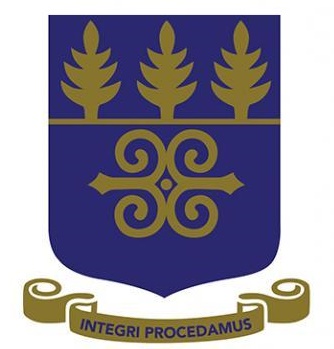ADLT 326 3 Credit Hours
Gender and Development
This information is for second semester 2017/2018 academic year
Teacher responsible
Prof. Olivia A. T. Frimpong Kwapong (PhD)
Availability
This course is available open to all visiting students but only as a second semester course.
Course Content
This course will expose you to the evolution of the concept of gender and practical issues related to the concept. Specifically we shall focus on gender and development theories and concepts, approaches for promoting gender and development, issues affecting women and how males could support the gender agenda. You will apply your studies in adult education and human resource to the solution of gender issues.
Teaching
The course will meet during scheduled class times, and use other on-line technology to deliver class materials through the SAKAI Learning Management System. Announcements will be posted to the course website and/email accordingly. It is your responsibility as a student to check on announcements made in class, on the Course Website, and through email.
Formative Coursework
There will be a total of five (5) assignments in this course, made up of the following:
· Two (2) Forums
· One (1) Newspaper, Radio & Social Media review assignment
· Three (3) Reading Response Papers
· One (1) Term Paper Project; and
· Final Examination
Indicative reading
Gender and Development: Concepts and Definitions Prepared for the Department for International Development (DFID) for its gender mainstreaming intranet resource by Hazel Reeves and Sally Baden February 2000 BRIDGE (development - gender)
http://www.bridge.ids.ac.uk/sites/bridge.ids.ac.uk/files/reports/re55.pdf
http://journals.sagepub.com/doi/pdf/10.1080/016502500750037946
Gender equality and women's empowerment: A critical analysis of the third-millennium development goal 1 Naila Kabeer
http://www.tandfonline.com/doi/pdf/10.1080/13552070512331332273?needAccess=true
12 Basic Ways to Integrate Media Literacy and Critical Thinking into Any Curriculum (3rd Ed.) by Cyndy Scheibe and Faith Rogow. Project Look Sharp, Ithaca College: Ithaca, NY, USA.
Kwapong, OATF. (2009). Male support for gender equality. Accra: Ghana
Universities Press, pps. 187. Chapters four to 11, pages 49 – 170.
Kwapong, OATF. (2009). Male support for gender equality. Accra: Ghana
Universities Press, pps. 187. Chapter Three Pages 34 – 60
Kwapong, OATF. (2009). Male support for gender equality. Accra: Ghana
Universities Press, pps. 187. Chapters One and Two Pages 1 -35
“Critical thinking: What it is and why it counts” by Peter A. Facione. Originally published by Insight Assessment, 1992. See weblink below:
http://www.insightassessment.com/pdf_files/what&why2004.pdf
“Changing Trends in Adult and Continuing Education: The Ghanaian Experience,” by
Yaw Oheneba-Sakyi, Olivia Adwoa Tiwaah Frimpong Kwapong, Samuel Kofi Badu-Nyarko,
Michael Ayittey Tagoe. In Changing Perspectives on the Social Sciences in Ghana, Agyei-
Mensah, et al (eds.), Dordrecht: Springer, Science and Business Media, 2014, pp. 313-333.
Assessment and Grading
|
Two discussion Forums |
40% |
|
Video Message Analysis |
20% |
|
Newspaper, Radio and Social Media Review Reading response papers Term Paper Final Examination |
20 % 30% 40% 50% |
Grading Scale:
|
Letter grade |
Marks |
Grade point |
|
A |
80-100 |
4.0 |
|
B+ |
75-79 |
3.5 |
|
B |
70-74 |
3.0 |
|
C+ |
65-69 |
2.5 |
|
C |
60-64 |
2.0 |
|
D+ |
55-59 |
1.5 |
|
D |
50-54 |
1.0 |
|
E |
45-49 |
0.5 |
|
F |
0-44 |
0.0 |

